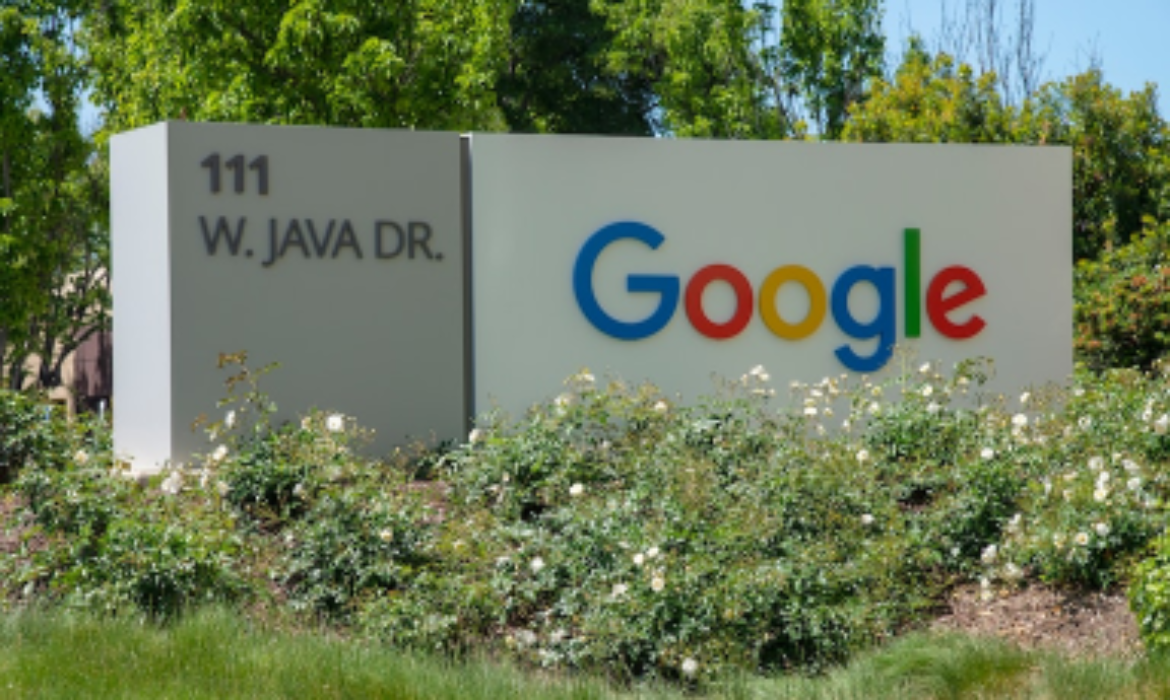Businesses usually have a lot of questions about how Google works. How can Google set my company apart from the competition? Or You want to get your site ranking in the SERPs (search engine results pages), but you might not know where to start. And as you know, Google makes changes constantly—so it can be hard to predict what will work today and what won’t work tomorrow.
Luckily, we’ve put together a helpful guide on what we know about how Google works. This is an excellent place to start if you’re just getting started with your digital marketing strategy or looking for some new ideas to test out on your site. Read on!
What is Google?
Google is the world’s biggest search engine, with over 1.9 billion active users every month, and it’s a massive part of how we live. Most of us interact with Google daily, and it has become an essential part of our lives. Google is owned by Alphabet Inc., which also owns YouTube, Android, and several other businesses.
Google works by using an algorithm to find keywords that match the search query and rank them by relevance. The search engine will then display results based on how many times those keywords appear in each website’s content.
The company has a reputation for being an unlimited source of information. But you can turn Google inside out, and you’ll still only see the tip of the iceberg.
Google is an algorithm, not a human brain. It makes decisions based on the information it has available to it — and that information is made available by people, just like you and me.
Many factors behind how Google works, but links are the magic ingredient in how Google reads web pages. If your page gets a link from another website. In that case, that’s a signal to Google that it’s authoritative and worth ranking high in search results.
How does Google work?
Google’s search engine does not see the Internet the same way we do. It does not know a website or a page; it sees an index. An index is like a library catalog. A librarian may have one million books in their library, but they don’t hold them in their brains. They have a record that contains all of the information about each book, and they use that catalog to find the books when they need them.
Google has a specific algorithm that crawls the web and decides which pages are shown in which order. The index is stored in data centers worldwide, making Google so fast. When you type something into Google, it looks at its index to find the best results for your search query.
The first part of Google’s algorithm is called a “crawler.” The crawler tracks link from page to page, finding content on each page and adding it to its index. The second part of Google’s algorithm is called “PageRank,” which determines where each piece of content should appear in Google’s search results. PageRank evaluates more than 200 signals to rank pages and determine where they should appear in Google’s search results.
Google’s results page
Google has long been the most popular search engine, and its results pages are known as SERPs. Each page displays up to 10 site links, with the first few results often getting substantial clicks. The problem is that competition for these positions is fierce.
Most of the time, there are several paid links above the links on the first page. These links are advertising; people have paid Google to place these links at the top of the website when visitors search for a particular phrase. Prices for these ads vary substantially, depending on the search term’s competitiveness. There are also some other components that you can find on Google’s search engine results page and these organic and paid results.
Google’s results pages are highly customizable and personal. If you are logged in to your Google account and searching, you’ll see personalized results even if you’re searching anonymously. You may also see different results based on your physical location or browser settings (such as language preferences).
How Does Google Use Links?
Links are the magic ingredient when it comes to an understanding of how Google works. The more popular a page is, the more links it will have, and the higher up in the search results it will appear.
It’s not just about popularity, though. If you’ve ever been shopping for a new apartment and found yourself on StreetEasy. In that case, you know that sites like these often rank highly because they’re so comprehensive. Their job is to list every apartment in New York City, but that means they have a lot of pages with links all over them.
Let’s say you’re looking for an apartment in Brooklyn. A good search engine will know where you are (or at least what city you’re in) and give you different results than if you were searching from Los Angeles. It should also show you apartments for rent in Brooklyn before showing you apartments for sale there. In short, it needs to understand natural language and get smarter with every question asked of it.
Links are still important for other reasons. They help Google understand what it should rank for and what a page is about. They actually lead to active link building quite quickly. As long as you collect valuable and logical links, link building can be a good SEO strategy. But if you contain (or worse, buy) shady links, Google may punish you for that. Check out this article that discusses 5 link-building DON’Ts you didn’t know about.
How SEO and Google can Work for Your Business
If you’ve started looking into online advertising, you’ve probably heard about the value of using Google in your marketing. While strategies like direct marketing through pay-per-click (PPC) advertising or search engine optimization (SEO) can do a lot to boost lead generation for your business, it’s also important to consider how Google works.
This book by Eric Schmidt, Google’s former CEO, and Jonathan Rosenberg, an adviser to the current CEO Larry Page, is a carefully designed PR exercise. The authors point out that How Google Works is not about the technical functioning but how the company operates. The promise is that if you, too, manage a business (or desire to do so), you will learn the secrets of Google’s success. So, it would be best if you engaged “smart creatives.”
Many people would have you think there’s some magic involved, but the truth is pretty straightforward. But if there’s one thing this explanation should show, it makes Google so successful. Google is a leader in search and advertising because the company keeps a very close eye on data (particularly user behavior). Then Providing its users with the best results for their needs.
This may not be glamorous, but in this day and age where more than two-thirds of Internet users look for information online three times or more per week, data-driven decision-making will win out every time.
Ultimately, it’s a pretty straightforward process. Read through your data, decide what you want to do with the information, do something (or don’t do something), and repeat the process. It might not be as fun as having employees ride collectivist desks into the sunset. Still, it’s much more likely to result in a happy, thriving company. And that’s what Google wants most of all, right?
The Book
The book is an easy and exciting read. However, I wouldn’t recommend it for its management advice but instead as an entertaining and thrilling history of Google. My takeaway from the book is that if you attempt to copy Google to become a “Google,” you are entirely on the wrong road.
What makes Google exceptional is that it is a corporation driven by technology and creators in a place where leadership thinking rules. Both Jonathan Rosenberg and Eric Schmidt were managers when they started at Google. Before making Google a success, they had to adjust and adapt their management styles to succeed as Google employees.
Becoming Google
Let’s say you want to become the next Google. You want to be the next $200 billion company and create thousands of new millionaires and billionaires. How do you do it?
I’m going to tell you how NOT to do it. Don’t copy Google. Look at what Microsoft did in the late ’90s. They copied every aspect of Google’s business, from the search engine to the paid search advertising model, and then spread it across their entire empire — MSN, Hotmail, etc.
Then come 2022, Google will do a better job with search results, and people will start using Google more, not just for search but also for email, maps, and documents.
Instead of copying the company, let’s look at how some giants in computer technology came about. If you compare Apple, Microsoft, AT&T, and Google, each firm:
They ventured to an area where no one else had gone before, believing that their product would serve humankind. The brand didn’t copy products, business models, or corporate culture from anybody else.
Had leadership who understood how to make the company develop on the fly, learning from failures and appreciating successes
They continued reinventing themselves. Staying around was not an option because of severe rivalry in the case of Apple, Microsoft, and Google or the danger of government break-up in the case of AT&T.
Google’s success is primarily due to its focus on user experience. The company aims to provide relevant information and services quickly and efficiently to users worldwide. Many of Google’s products incorporate this focus on user experience — which has led to the company’s dominance in the internet search space — while others are simply data services that make use of the company’s vast network of information.
Recommended Reading?
Do I recommend reading the book? Definitely. It provides excellent insights into what it took to make Google “Google.” Both Jonathan Rosenberg and Eric Schmidt came to Google early in life, when the company was much smaller. They were a part of turning it into one of the most potent companies ever created. They’re also very well-qualified to write this book, as Schmidt has served as CEO and Chairman of Google. At the same time, Rosenberg is currently Senior Vice President for Product Management at Google.
The book is divided into three sections: “Management,” “Strategy,” and “Execution.” Each team is then divided into smaller units that cover specific topics within each more significant area. The book’s layout is easy to follow, but you will probably want to jump around from topic to topic with little regard for the order if you are like me. You can do so without losing context or getting lost in what you are reading.
The more we understand how Google works, the better we can tailor our efforts to produce the best results possible. While this post isn’t meant to be an exhaustive list of everything Google’s algorithms are looking for.


